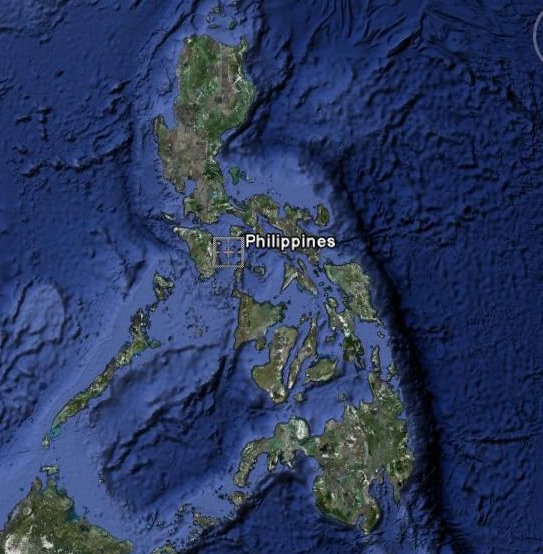Un-Safe Sea Jellyfish Lotion - OceanLine's Titanic Thailand Omission
For almost 10 years, OceanLine - the Phuket-based importer and distributor of Safe Sea Sunscreen with Jellyfish Sting Protection - has been claiming that this product is effective in preventing stings from jellyfish. In one breath they say it "protects the skin against jellyfish stings" and in the other it "helps protect against most jellyfish". Well, which is it? All or most?
If you buy Safe Sea and believe that you and your family will be protected against all jellyfish stings when in the seas of Thailand, Malaysia, the Philippines and other countries in South-East Asia, you are wrong, and you are being misled.
Nidaria, the developer of Safe Sea, has clinically tested the product on a number of species of jellyfish in certain situations. According to their research and the data obtained from some particular species in some locations it appears as though it mostly works, although not always.
BUT there is no evidence of testing at all on the deadly species of box jellyfish that inhabits the seas of Thailand, Malaysia, Singapore and the region.
So it seems that the answer is not ALL jellyfish, just MOST jellyfish. The main one missing from their research, the one that downgrades their claim to a 'most', just happens to be a killer.
Not all jellyfish are the same. In fact, there are around 50 different species of box jellyfish and the majority are non-lethal. Thailand's most dangerous box jellyfish, for example, is Chironex indrasaksajiae Sucharitakul sp.. This species of box jellyfish is known to be highly venomous and responsible for multiple deaths.
Despite stating on their website that their products have been clinically tested in Thailand, there is absolutely no evidence that Safe Sea actually has been tested in Thailand or indeed on Chironex indrasaksajiae Sucharitakul sp.. None.
The stinging mechanisms in jellyfish can vary from class to class and species to species so the results of testing would most likely differ. But OceanLine isn't concerned about facts, nor it seems safety.
Safe Sea sponsors events around Thailand. Children in swimming carnivals and the like now associate the brand with 'jellyfish sting protection'. They have products in supermarkets, mini-marts, pharmacies, hotels/resorts, dive centres and surf shops around Thailand, Malaysia and Singapore. They are big on marketing, and expanding, but short on the truth.
A one-lotion-stops-all approach is deceptively dangerous as OceanLine is acutely aware of the facts. They have known the truth since 2009 when it first confronted them. But not only have they not acknowledged it, they continue to sell Safe Sea, recklessly referencing Thailand's box jellyfish in their social media and online presence, telling customers deceitfully that they will have jellyfish protection. Nope. Not in Thailand you won't. Not in Malaysia. Not in the Philippines. 'Most' doesn't cover you against a nasty big boxie.
Providing you and your kids with a false sense of security is nothing short of negligent. The Safe Sea store website even has a 'Thailand Box Jellyfish Calendar' based on moon cycles, claiming "we can predict when these pests are most likely to be active and plentiful in waters around Thailand". Ridiculous rubbish! Complete and utter concocted poppycock.
Further Reading:
A box jellyfish species in Hawai'i is known to appear on their beaches in a pattern dictated by the lunar cycle, and possibly in Israel according to a 2016 study, but in Thailand? Again, nope! Wrong, dangerously wrong. Different animal, different behaviour. No research, no evidence. And these people want you to trust their products?
Is Safe Sea available in-store in Australia whose northern tropics are home to the infamous box jellyfish Chironex fleckerii? No. Because it's not been tested on them. There is no evidence that it will work. The risk to human life is too great for it to be made available.
Here's an event that OceanLine can arrange in Phuket for Safe Sea. How about they team up with some local marine biologists, catch some Chironex indrasaksajiae Sucharitakul sp. specimens, contact the Phuket media, and stage a public stinging. No doubt OceanLine's Director would be the first volunteer to step up and show us all just how safe Safe Sea actually is.
For more on the subject of Safe Sea, as there is plenty more, follow these links:
Images OceanLine FB public page.






Interesting post. Thanks for sharing. Bold claims from the manufacturer, but from you too. On what research / tests are your claims based on?
ReplyDeleteThere are other posts on this specific issue that are linked at the bottom of this post. These previous posts further support our claims as this issue has been ongoing for around 10 years. If you require any further proof that we hold privately feel free to email us and we will happily follow this up directly with you. Thanks. Blog Boxie.
Delete